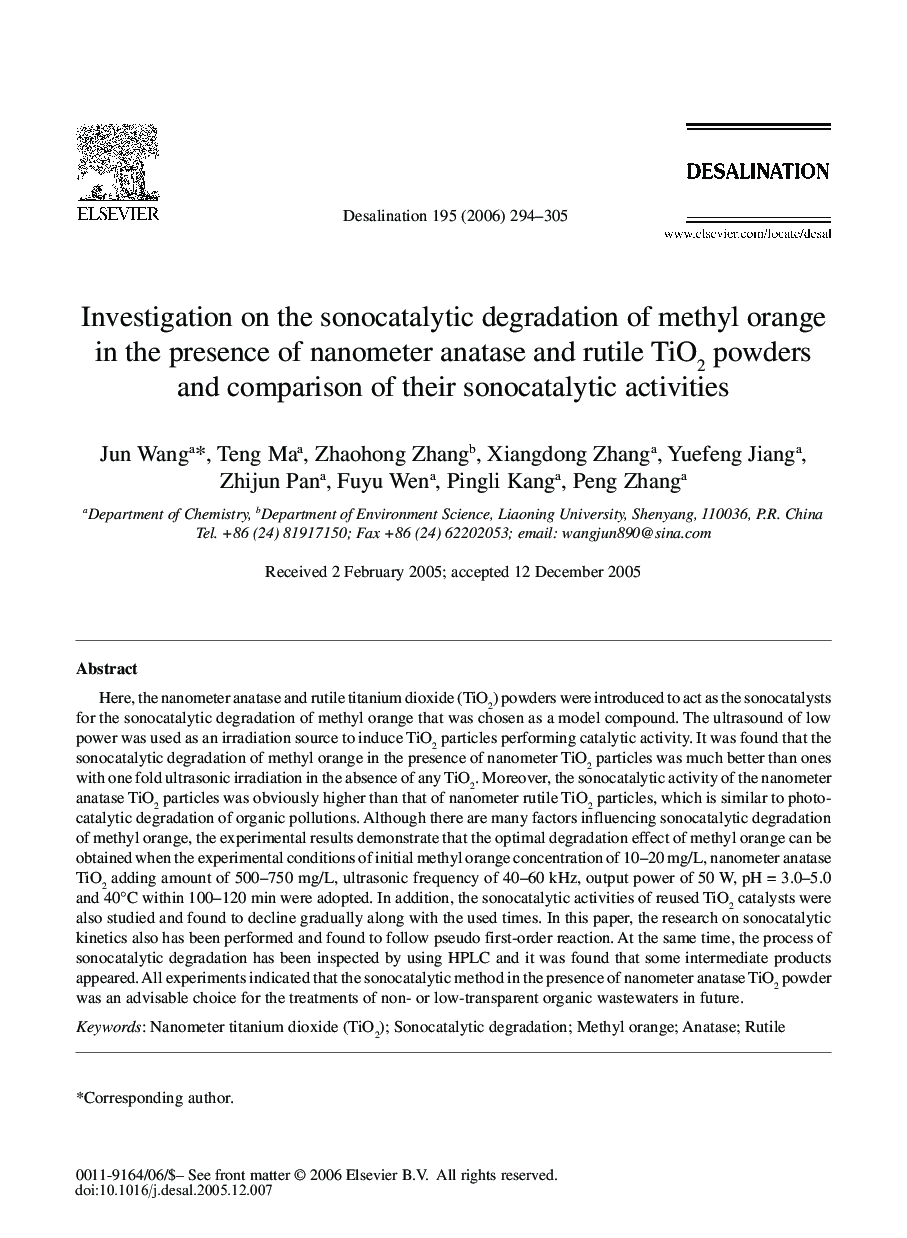| Article ID | Journal | Published Year | Pages | File Type |
|---|---|---|---|---|
| 628928 | Desalination | 2006 | 12 Pages |
Abstract
Here, the nanometer anatase and rutile titanium dioxide (TiO2) powders were introduced to act as the sonocatalysts for the sonocatalytic degradation of methyl orange that was chosen as a model compound. The ultrasound of low power was used as an irradiation source to induce TiO2 particles performing catalytic activity. It was found that the sonocatalytic degradation of methyl orange in the presence of nanometer TiO2 particles was much better than ones with one fold ultrasonic irradiation in the absence of any TiO2. Moreover, the sonocatalytic activity of the nanometer anatase TiO2 particles was obviously higher than that of nanometer rutile TiO2 particles, which is similar to photocatalytic degradation of organic pollutions. Although there are many factors influencing sonocatalytic degradation of methyl orange, the experimental results demonstrate that the optimal degradation effect of methyl orange can be obtained when the experimental conditions of initial methyl orange concentration of 10-20 mg/L, nanometer anatase TiO2 adding amount of 500-750 mg/L, ultrasonic frequency of 40-60 kHz, output power of 50 W, pH = 3.0-5.0 and 40°C within 100-120 min were adopted. In addition, the sonocatalytic activities of reused TiO2 catalysts were also studied and found to decline gradually along with the used times. In this paper, the research on sonocatalytic kinetics also has been performed and found to follow pseudo first-order reaction. At the same time, the process of sonocatalytic degradation has been inspected by using HPLC and it was found that some intermediate products appeared. All experiments indicated that the sonocatalytic method in the presence of nanometer anatase TiO2 powder was an advisable choice for the treatments of non- or low-transparent organic wastewaters in future.
Related Topics
Physical Sciences and Engineering
Chemical Engineering
Filtration and Separation
Authors
Jun Wang, Teng Ma, Zhaohong Zhang, Xiangdong Zhang, Yuefeng Jiang, Zhijun Pan, Fuyu Wen, Pingli Kang, Peng Zhang,
